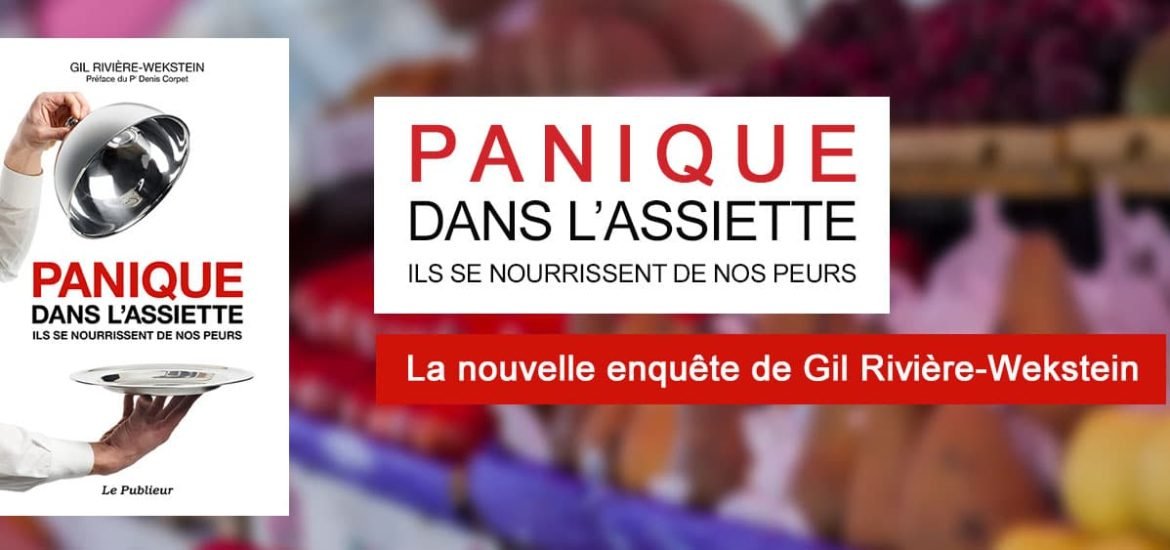
Gil Rivière Wekstein writes for the French blog Agriculture and Environnement. He is also a member of the Association Française des Journalistes Agricoles (French Farming Journalists’ Association). We talked to him about his latest book “Food panic – they feed on our fear” in which he looks into the intricacies of the food industry and the business of organic food.
You have uncovered what you call a “Fear Factory”. What is it?
“Food fears” have always existed, but the source of these fears has actually been radically altered because of a real “Fear Factory”
Historically, food-related fears have been about the risk of food shortages, food poisoning, or fear of new foods, a well-known example being the introduction of the potato.
But in the twentieth century, in industrialised countries, these fears disappeared and were replaced by “the tin syndrome”. That’s where a food seems suspicious to us because we can’t touch it, smell it or look at it to see if it is safe. We no longer knew where these foods came from, how they were made or what they contained. Then these fears were heightened with the advent of mass produced ready meals and junk food.
And it is on this fertile soil that new food fears have sprouted. You should be aware that there is nothing natural about this phenomenon. In fact there are mutual interest groups – from agribusiness to certain NGOs – who feed these fears. These industry players have defined a “conceptual map”: that of “natural” and “free from”: “Gluten-free”, “colour-free”, “sugar-free”, “pesticide-free”, “preservative-free”, “lactose-free”, “GMO free”
These fears have been amplified by a multitude of reports calling our diets into question. In 2015 alone, there were 85 programmes of over 20 minutes long, suggesting that eating has become a risky activity. As a result, today 79% of the French population are worried about the effects of their diet on their health. This is an increase of 20 percentage points in three years! It’s really alarming.
My book “Panique dans l’assiette, ils se nourrissent de nos peurs” [A Plateful of Panic: they feed off our fears] provides readers with the resources to enable them not to be fooled by this infernal machine. This kind of marketing has led to a real thriving business, making asses of farmers accused of producing bad food and with consumers emptying their piggy banks for products that are ultimately no better for their health.
So – can we eat without fear?
Yes, absolutely! At any rate, by respecting one simple rule: eat everything, in a balanced way, focusing on fruit and vegetables. A good meal is not a “free from” meal, but a meal consisting of several types of food. Not just because each element offers something essential, but because there are very beneficial cocktail effects. So for example Professor Denis Corpet’s team has shown that the potentially negative effects of a good piece of red meat are neutralised if it is accompanied by a glass of wine or some cheese. We need to get back to the pleasures of the table, and the companionship of a good meal, and stop fixating on false problems. Otherwise, we risk missing the real problems.
And what are they?
First of all, there is orthorexia, which is the systematic rejection of foodstuffs – or rather of nutritional compounds – perceived as unhealthy. Orthorexia is the most extreme form of these food obsessions that express themselves in different ways but have in common the fact that they generate anxiety about the contents of your plate. The most prevalent today is undoubtedly the growing rejection of gluten, but also the fact that the consumption of certain fruits has become representative of a risk factor. Especially apples which are often taken as an example in campaigns against pesticides. Do you know that you would have to eat 25 million apples, skin and all, to ingest as many carcinogens as in one glass of wine, whether it’s organic or not?
And most notably obesity, a huge and well recognised problem which in fact stems from a diet that is not balanced, particularly as a result of changing lifestyles which burn far fewer calories.
This post is also available in: FR (FR)